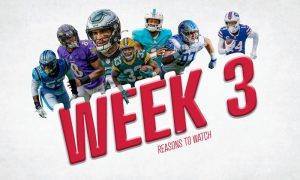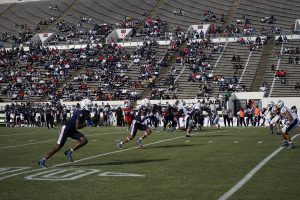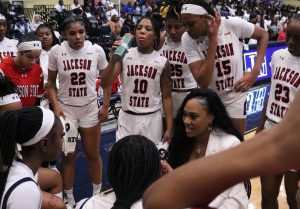Kambui Bomani
Sports Writer

The world of college sports consists of various student-athletes who play for the love of the game. Whether the goal is to get to the professional ranks or become the best player they can be, student-athletes have become intertwined with their respective sport.
The ultimate goal is to possibly gain the biggest payoff ever from the game they love. Whether it be through getting drafted to a professional team or earning a huge endorsement deal that will sustain their financial needs.
With years passing and controversy involving several prospects, the facts still remain that the student-athlete is a pawn in the corporate world run by the National Collegiate Athletic Association. T
he NCCA has been known to uphold amateurism as the most important thing their student-athletes can covet. They refuse to allow college athletes to profit off of their likeness or let alone obtain illegal financial benefits from outside sources while in school. The reasoning behind this can be that colleges deeply believe giving students athletic scholarships to attend their programs is adequate compensation.
However, the drop-off of payment that the school obtains from specific sports program in comparison to what the college athletes recuperate in athletic scholarships is massive. Collegiate football in the state of Texas alone is worth a combined $1.1 billion dollars. This is the root of the issue for student-athletes around the country. There is no specific collegiate union in place to represent these students as a whole.
The average student-athlete works extremely hard and dedicates their life to be ready for game day. They sacrifice their life, education, and health to obtain success for themselves and their schools but are behooved forever trying to garner equitable compensation for their efforts. They’re deemed as criminals in the public eye for protesting for protection of their human likeness or for forming a union designed to farmer equal pay.
On Sept. 13, the state of California passed a law in favor of a bill that could make it possible for student athletes to earn money for their names, images, and likeness. “The Fair Pay to Play” act that was proposed by senator Nancy Skinner, has the opportunity to make the NCAA relinquish their rope on not paying their student-athletes.
This bill is not yet a law and has various nuances that still need to be figured out. However, if passed in its totality, it has the chance to alter the history of amateurism forever in collegiate sports.
Taronta Gines Jr., a junior accounting major from Moss Point, Miss., is in full support of college athletes getting paid.
“I’ve been an athlete my whole life and I can’t imagine playing for the number one ranked program with the highest selling jersey and not getting paid. It’s just not right. Some of these players come from environments that are harsh and they not only deserve the money, but they need it. It’s also not about the money entirely. Equal compensation for your work is a deeper conversation,” said Gines Jr.
Dasia Dyson, a sophomore healthcare administration major from New Orleans, La., said college athletes should be paid in addition to them receiving a scholarship.
“College athletes should get paid even if they receive a scholarship to attend school. The scholarship is essentially a form of pay but is not substantial enough considering the school is generating millions of dollars and students are struggling,” said Dyson





Be First to Comment